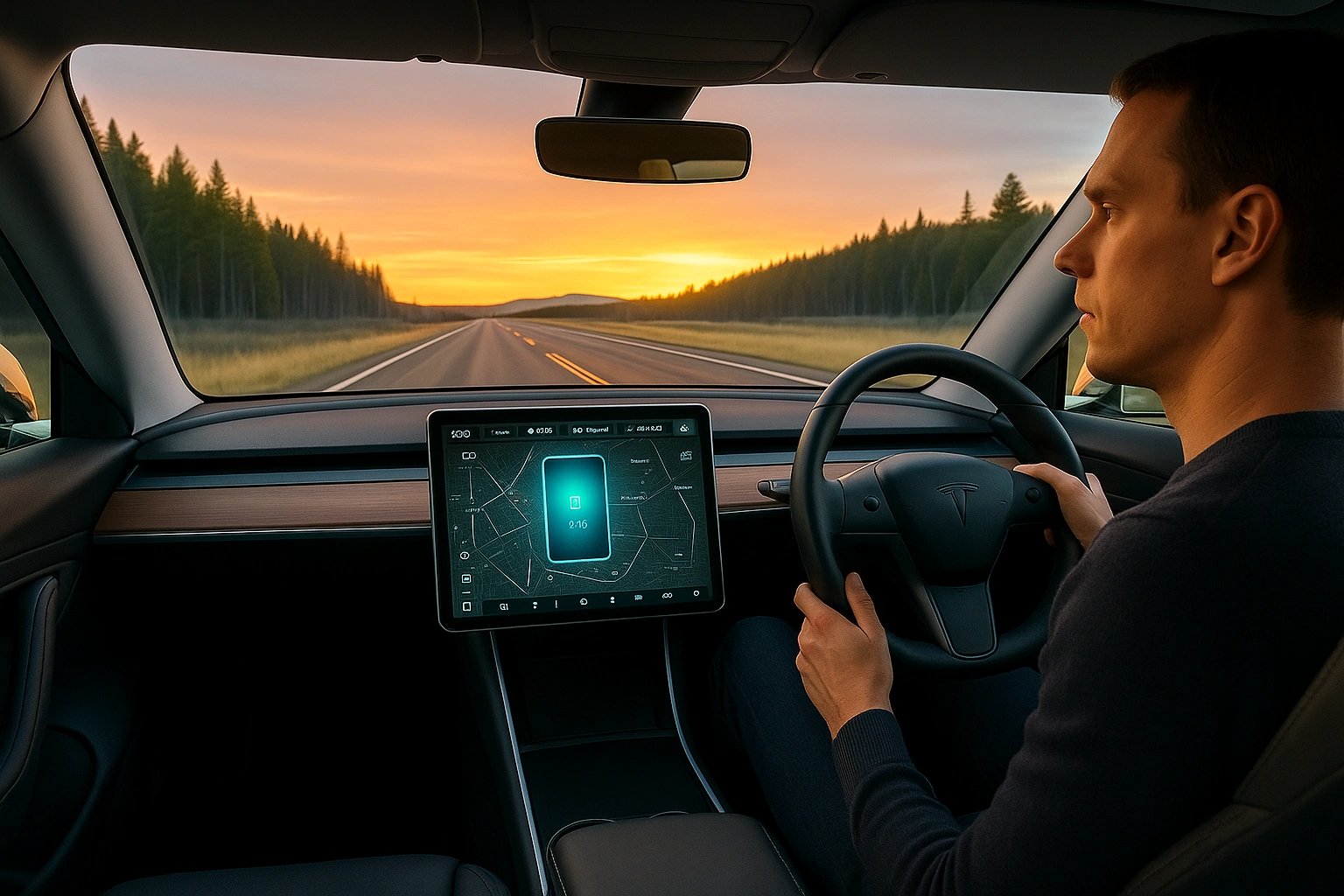Are You Trusting Your Car with Your Business Data? You Might Want to Rethink That
You climb into your car. Your phone connects. You charge it, take a few calls, maybe fire off a Teams message. Harmless? Not so fast.
Modern infotainment systems are more than just glorified sat-navs. They are full-blown computers with microphones, GPS, cameras, and internet connections. And increasingly, cyber security experts, including those inside the UK Ministry of Defence (MoD), are urging caution about how we connect our devices to our cars.
Especially when the badge on the bonnet has links to countries with, shall we say, less flexible views on privacy.
What the UK MoD Is (and Is Not) Saying
Could we please be clear?
The MoD has not issued a public, official ban on plugging your phone into your car.
But it has made it known, through internal channels and credible reporting, that security risks exist when mobile phones and sensitive discussions happen inside vehicles.
This concern is heightened when those vehicles are packed with foreign-made tech.
Reports surfaced that military personnel have been told to park Chinese-branded EVs away from sensitive bases, to avoid holding conversations inside those cars, and to think twice before connecting phones.
The logic is simple.
If your car can hear you, track you, or access your data, so can anyone who controls the car’s technology.
Sounds dramatic? Maybe. But this is the same MoD that did not wait for Huawei to start misbehaving before booting them from critical infrastructure.
Cyber security 101 says if the risk exists, act before it becomes an incident.
So What’s the Real Risk with Infotainment Systems?
It is not just about Chinese EVs. It is about every car on the road today.
Infotainment systems are no longer passive. They actively connect, store, sync and sometimes transmit information. When you plug in your phone, you are offering up contacts, call logs, navigation history, and even media files. You might even be granting microphone access without realising it.
The system might seem harmless. But every connection point is an opportunity.
If you connect your work phone to a system you cannot verify, you have effectively invited a stranger into your digital life.
And if that stranger turns out to have a dark agenda, you have just saved them a lot of effort.
The reality is blunt.
Your MG, Tesla, Kia, or BMW is a potential data sinkhole unless you manage it properly.
Should You Ditch CarPlay Altogether?
No. You should not.
Apple CarPlay and Android Auto are actually quite well-designed from a security standpoint. They sandbox access and limit what the car can see. They encrypt traffic. They are vastly safer than old Bluetooth setups.
But plugging in over USB still carries risk. A compromised head unit could pull basic phone data during that initial connection. Wireless CarPlay is better because it forces an encrypted pairing process and keeps the phone at a slight technological distance from the car.
The trick is not to panic. The trick is to connect smartly.
How to Drive Cyber Safe in a Connected World
Start with your cable. Use a data-blocking USB adapter every time you physically connect your phone. These devices cut off the data pins and only allow power to flow. No data transfer, no sneaky syncing, no nonsense.
Where possible, choose wireless CarPlay instead of wired. It is still not perfect, but it is better.
When setting up your car, disable any options that allow the system to sync your contacts, messages, and call history. You are there to drive, not to give your car access to your entire professional network.
If you decide to change cars or sell your current one, reset the infotainment system properly. Delete any paired devices and wipe any residual personal information before handing it over.
Think carefully before holding sensitive conversations inside the car. Even if you trust the hardware, why take the risk? Step outside for confidential calls where possible.
Keep your car's firmware up to date. Manufacturers do patch known vulnerabilities. Ignoring updates because you cannot be bothered to sit on the drive with the WiFi connected is asking for trouble.
And finally, adjust your mindset. Treat your car like you would treat a public WiFi hotspot. Convenient, useful, but never fully trustworthy.
Why This Matters More Than Ever
Modern business life is hyper-connected. That is not changing.
But every connection you make needs a purpose and a justification.
Cars, like laptops, phones and smartwatches, are now part of your attack surface.
Ignoring the risks because you want a quick Spotify playlist or a seamless map experience is the cyber equivalent of leaving your front door open because you "live in a nice area."
You are smarter than that. You know better.
Final Thought
You do not need to ditch your MG. You do not need to smash your phone and join a monastery.
You just need to apply the cyber discipline you already use in other parts of your life to your car.
Modern cars are amazing. But they are not your friends.
Connect cautiously. Charge wisely.
And never, ever assume that a dashboard screen is just for entertainment.
Sometimes, it is a window into your entire life.
| Source | Article |
|---|---|
| Auto Express | MoD Says Chinese EVs Should Be Parked Two Miles From Sensitive Sites |
| Cybersecurity Insiders | Defense Workers Told Not to Charge Phones in Chinese EVs |
| Reuters | U.S. Moves to Curb Risk of Chinese Connected Vehicles |
| European Council on Foreign Relations | The Security Risks of China’s Electric Vehicles in Europe |
| Australian Home Affairs Department | Australia's Cyber Security Strategy |
| Linux Foundation | Common Attacks Against Car Infotainment Systems |
